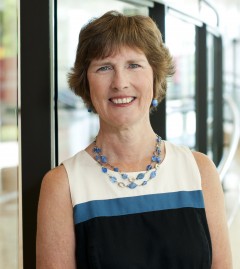by Omar Elsharkawy, CFICE Admin RA
Social innovation has become a trendy word that gets thrown around a lot and for good reason. Social innovation is becoming increasingly popular in the community development, and community-campus engagement sectors. To understand what social innovation is and why it’s important for community-campus engagement, I interviewed folks heavily involved in the social innovation world and discovered that “social Innovation” means different things to different people.

Tessa Hebb, research fellow at the Carleton Centre for Community Innovation
According to Tessa Hebb, a distinguished Research Fellow at the Carleton Centre for Community Innovation (3ci) at Carleton University, “Social innovation is a process, and not a product, that leads to outcomes and impact.”
Tammara Soma, PhD candidate at the University of Toronto and Pierre Elliot Trudeau scholar says, “Social innovation can be applied in a lab form as an approach to solve deep rooted systemic problems by bringing collaborators and stakeholders together.” Tammara Soma’s Food Systems Lab takes a social innovation approach in working to create long term solutions and interventions, and interdisciplinary, evidence-based policy. The increasing popularity of social innovation has seen an increase in innovation labs in the contemporary era.

Tammara Soma of Food Systems Lab
1125@Carleton is another example of a social innovation lab. Jenna Hobin, community coordinator at 1125@Carleton explains that the goal of 1125@Carleton lies with meaningful collaboration. “1125@Carleton is the social innovation hub at Carleton University, bringing individuals and organizations together from both the on and off-campus community who have a passion for impacting positive social change. We believe in the power of meaningful collaboration to explore pressing issues on a global and local level including tackling homelessness, Indigenous issues, healthcare reform, and human rights and equity.”
Hobin believes post-secondary institutions have an important role to play in social innovation. She says social innovation labs allow individuals within the university to build on the knowledge they gain from traditional classroom environments to create an impact in the world regardless of their field of work. Hebb shares this sentiment and believes that there’s a tendency for universities to silo the knowledge creation process. Alternatively, social innovation spaces such as 3ci and 1125@Carleton, which are housed at universities, have the capacity to enable the co-production of knowledge.
Running a social innovation lab comes with its challenges, Tessa Hebb says. Like all non-profit entities, 3ci is 100% externally funded. It exists to connect university to community but the structure of research centres means that almost all its funding comes from external resources as opposed to resources within the university. This means that significant amounts of time and energy are spent in seeking external funding to allow the centre to hire and engage students. Once these resources are in place though, projects like CFICE and 3ci’s Responsible Investing Initiative have the opportunity to excel in community engagement.